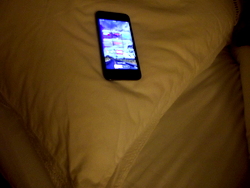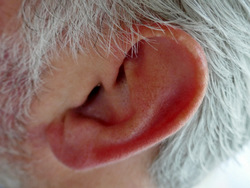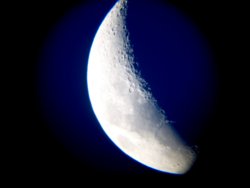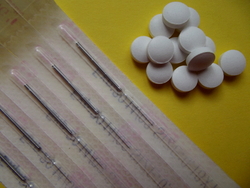
Researchers at Pennsylvania State University in the US have compared the effects of reading in the hours before bedtime, either an electronic light-emitting device (LE-eBook) such as an iPad or iPhone, or a printed book. They found that people reading an LE-eBook took longer to fall asleep and had reduced evening sleepiness, reduced melatonin secretion, later timing of their circadian clock, and reduced next-morning alertness compared to when reading a printed book.
In the randomized, crossover study, twelve healthy young adults were admitted to Brigham and Women’s Hospital in Boston for fourteen days, in order for the researchers to control for other factors. Two situations were examined: 1) reading an LE-eBook in an otherwise very dim room for around four hours before bedtime for five consecutive evenings; 2) reading a printed book in the same very dim room for around four hours before bedtime for five consecutive evenings. Blood samples were taken to allow melatonin levels to be measured, and sleep characteristics such as time taken to fall asleep and sleep stages, were all recorded.
Compared with the print-book readers, the LE-eBook readers: averaged nearly ten minutes longer to fall asleep; had significantly less rapid eye movement (REM) sleep; rated themselves as less sleepy an hour before bedtime; and, felt more sleepy the morning after reading an LE-eBook the prior evening. Furthermore, it took them longer to fully “wake up” and attain the same level of alertness.
The researchers say these results indicate that reading an LE-eBook in the hours before bedtime probably has unintended biological consequences that may adversely impact on performance, health, and safety. The mechanism would appear to be the disruptive effect of light at the blue end of the spectrum which is emitted by these screens. There are also implications for children looking at screens for evening homework and social media interaction.
(Evening use of light-emitting eReaders negatively affects sleep, circadian timing, and next-morning alertness. Proceedings of the National Academy of Sciences of the United States of America, on-line 22 December 2014.)
 Acupuncture helps sleep and can reduce pain levels in military veterans, according to American researchers. Forty-five veterans aged 18 to 65 experiencing insomnia and chronic pain, were randomised to receive either ear acupuncture or usual care. The study was undertaken at the largest American hospital outside the US, a military facility in Germany, with specialist insomnia and pain departments.
Acupuncture helps sleep and can reduce pain levels in military veterans, according to American researchers. Forty-five veterans aged 18 to 65 experiencing insomnia and chronic pain, were randomised to receive either ear acupuncture or usual care. The study was undertaken at the largest American hospital outside the US, a military facility in Germany, with specialist insomnia and pain departments.
 A large randomised controlled trial on acupuncture for insomnia has concluded it is effective and safe. Researchers in Hong Kong allocated 224 subjects to receive either acupuncture alone, acupuncture plus ear acupressure, or a waiting list control. There was no significant difference between acupuncture and the combination treatment. However, both were significantly better than the waiting list at reducing insomnia, with a moderate to large effect size, and at reducing anxiety, depression and fatigue. Improvements were maintained at 13 weeks after treatment.
A large randomised controlled trial on acupuncture for insomnia has concluded it is effective and safe. Researchers in Hong Kong allocated 224 subjects to receive either acupuncture alone, acupuncture plus ear acupressure, or a waiting list control. There was no significant difference between acupuncture and the combination treatment. However, both were significantly better than the waiting list at reducing insomnia, with a moderate to large effect size, and at reducing anxiety, depression and fatigue. Improvements were maintained at 13 weeks after treatment.

 A small study undertaken by researchers at a hospital in Taiwan suggests acupuncture could be used as an alternative to the drug zolpidem. A total of 33 patients with insomnia were randomly allocated to receive either weekly acupuncture sessions (19 patients), or 10mg zolpidem (14 patients), over four weeks. At the end of the treatment period, both groups exhibited significant improvements.
A small study undertaken by researchers at a hospital in Taiwan suggests acupuncture could be used as an alternative to the drug zolpidem. A total of 33 patients with insomnia were randomly allocated to receive either weekly acupuncture sessions (19 patients), or 10mg zolpidem (14 patients), over four weeks. At the end of the treatment period, both groups exhibited significant improvements.